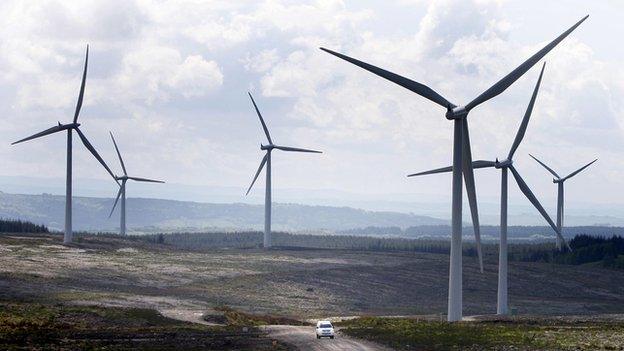Small energy firms 'escape levies'
- Published
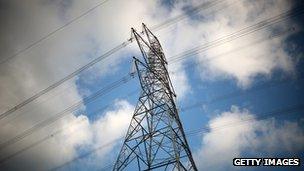
Small energy providers are exempt from some social levies
The head of one of the UK's biggest energy companies has suggested that smaller providers have an unfair cost advantage.
Tony Cocker, the chief executive of E.On, said small companies were excused from paying some of the environmental and social levies.
Such levies make up between 8% to 9% of the average bill.
It comes amid speculation that the prime minister may order a Competition Commission inquiry into the market.
On Tuesday, Mr Cocker told MPs that there should be a full investigation. He and seven other company bosses were called before the Energy and Climate Change Committee to justify recent price rises.
Speaking to the BBC's Today programme, Mr Cocker said: "The small companies are exempt from a number of environmental and social obligations. Not all, but some of them."
Savings
Energy firms with less than 250,000 customers do not have to pay the Energy Companies Obligation (ECO), or the Warm Home Discount.
In addition, those not involved in fossil fuel generation participate in neither the EU Emissions Trading Scheme nor the Carbon Price Floor.
Together those account for £71 on an average bill. In other words, customers of the smaller companies are relatively unburdened by such levies.
Customers of the larger companies also pay different amounts.
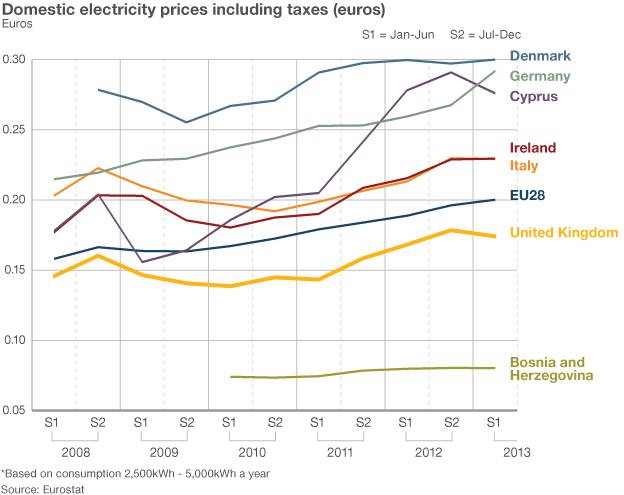
British Gas says its customers pay £160 a year on average to cover the levy costs.
SSE customers pay £120.
This means that customers of the seven biggest companies might face the largest reduction in their bills, should the government reduce the levies, or transfer them into general taxation.
Prices
Stephen Fitzpatrick, the managing director of Ovo Energy, claimed that his firm could cut bills for many consumers.
"I can tell you, of the four companies that have raised their prices, we are around £160 cheaper. So that's about 12% to 13% for a customer of average consumption," Mr Fitzpatrick told the BBC.
Ovo raised its prices by 5.8% in April 2013.
So far this month, British Gas, SSE, Scottish Power and Npower have raised prices by an average of 9.1%.
The regulator, Ofgem, estimates that levies add about £107 a year to an average bill, or 8%.
The Department for Energy and Climate Change (DECC) puts the figure at £112, or about 9%.
E.On boss Tony Cocker defends the price increases
At Prime Minister's questions, David Cameron repeated his pledge to consider "rolling back" some of the levies.
"What we need is more competition, and lower levies and charges to drive prices down," he said.
But the Labour leader, Ed Miliband, accused him of changing his mind on levies.
"In January he was boasting about the size of his levies. He was saying the bigger, the better. Now he's saying the opposite," said Mr Miliband.
"Most companies don't want a price freeze," he added, "and most consumers do."
Mr Cameron said that it was not a "price freeze", but a "price con."
The government is expected to announce more details of its annual review of the energy market on Thursday.
The review will be led by the regulator Ofgem, together with the Office of Fair Trading (OFT), and the Competition and Markets Authority (CMA).
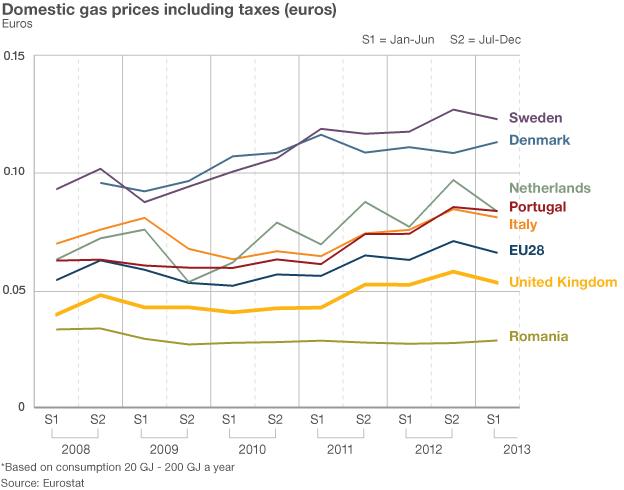
- Published29 October 2013
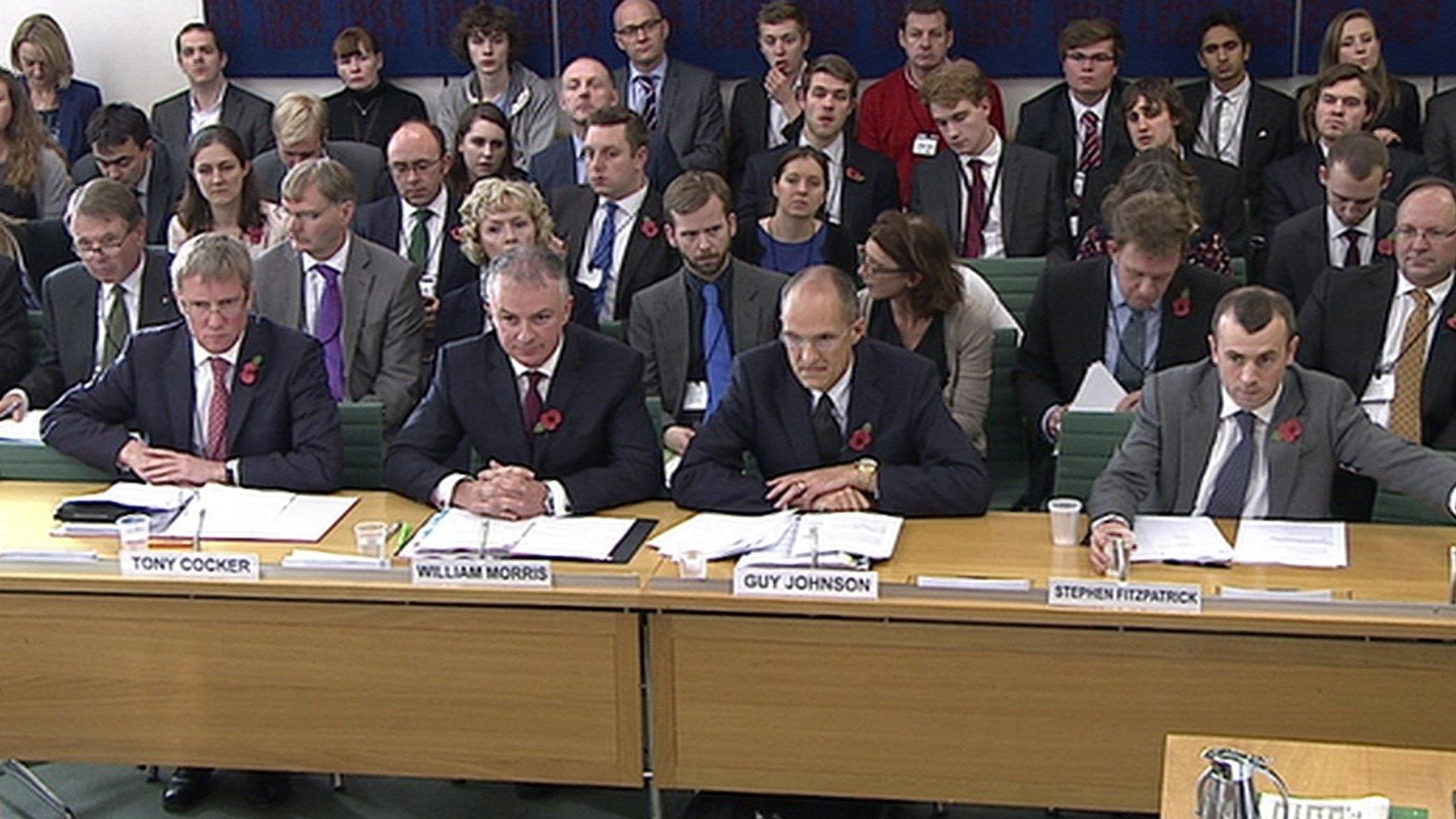
- Published27 March 2014
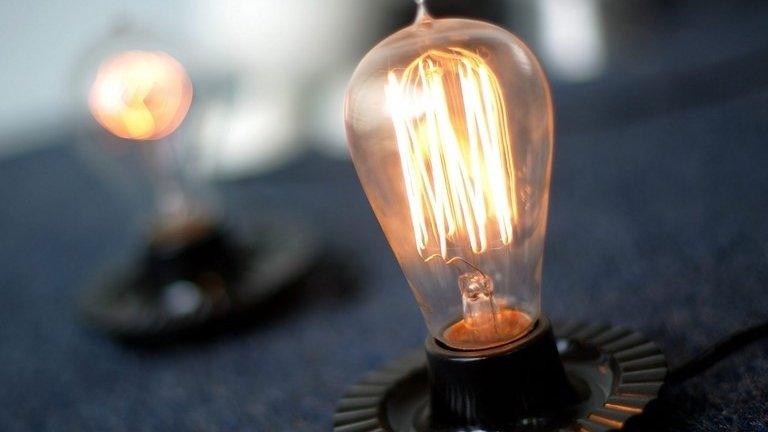
- Published23 October 2013
